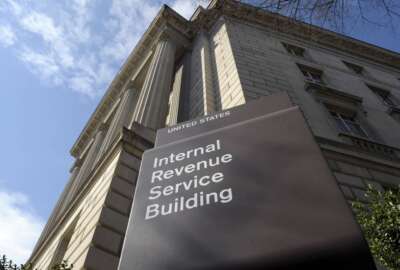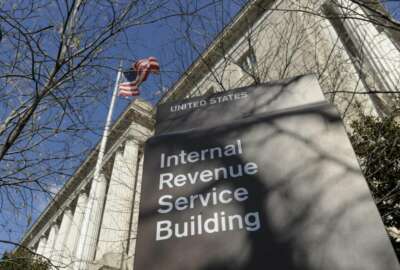IRS brings teleworking staff back to office in phased reentry starting in May
The National Treasury Employees Union confirmed Thursday that the IRS plans to bring bargaining unit employees back to the office in two phases, one on May 8, t...
The IRS is planning a phased return to the office for employees who are still teleworking.
The National Treasury Employees Union confirmed Thursday that the IRS plans to bring bargaining unit employees back to the office in two phases, one on May 8, the other on June 25.
NTEU President Tony Reardon said in a statement that the IRS and the union successfully negotiated an agreement regarding the agency’s decision to end its maximum telework policy and bring additional employees back to more than 600 facilities across the country.
“NTEU is pleased that we were able to sit down with the agency and come to this agreement regarding how to best protect employees and serve taxpayers in the post-pandemic workplace,” Reardon said.
Reardon added that the phased office reentry and additional telework opportunities outlined in the union’s national contract with the IRS that took effect last year should help ensure employee safety.
The IRS is the latest agency to outline its office reentry plans. The Department of Veterans Affairs announced this week that it recently brought non-bargaining unit employees back to the office, and expects bargaining unit employees to return by May.
The Environmental Protection Agency also reached a deal with the American Federation of Government Employees to bring its employees back to the office on a phased basis starting in May.
President Joe Biden, in his State of the Union address earlier this month, said the “vast majority of federal workers will once again work in person,” and said the government should serve as a model for a broader return to office across the country.
Some lawmakers, however, argue federal employees aren’t returning to the office soon enough.
Sen. John Kennedy (R-La.) introduced the Require Employees To Uniformly Return Now (RETURN) Act earlier this month, which would require all teleworking IRS employees to return to the office until the agency has resolved a backlog of millions of unprocessed tax returns.
“The IRS’s employees are working from home while it faces a mountainous tax return backlog. The RETURN Act would bring these employees back into the office so the IRS can eliminate the backlog and get hardworking Americans their tax refunds,” said Kennedy.
Kennedy said almost 70% of IRS employees were still teleworking full-time, as of January 2022.
IRS Commissioner Chuck Rettig, however, told members of the House Ways and Means Committee last week that returns processing employees have been back in the office since June 2020, working multiple shifts and taking on mandatory overtime.
Employees in accounts management and submission processing, he added, have been offered voluntary overtime.
“The percentage of people who are required to be back in the office are all back in the office,” Rettig said.
While the reentry plans will bring more employees back to agency facilities, NTEU said tens of thousands of IRS employees have already been reporting to the office throughout most of the pandemic.
“Their performance under stressful circumstances during a global health crisis has been exemplary, and the agency’s backlogs would have been infinitely worse without them. Throughout the pandemic, the IRS workforce, once again, demonstrated its dedication in serving our country,” Reardon said.
Reardon added that many IRS employees have successfully teleworked since the start of the pandemic.
“They seamlessly set up shop from kitchen tables and home offices to continue to meet the mission of the agency,” he said.
The IRS did not immediately respond to a request for comment.
Copyright © 2024 Federal News Network. All rights reserved. This website is not intended for users located within the European Economic Area.
Jory Heckman is a reporter at Federal News Network covering U.S. Postal Service, IRS, big data and technology issues.
Follow @jheckmanWFED






